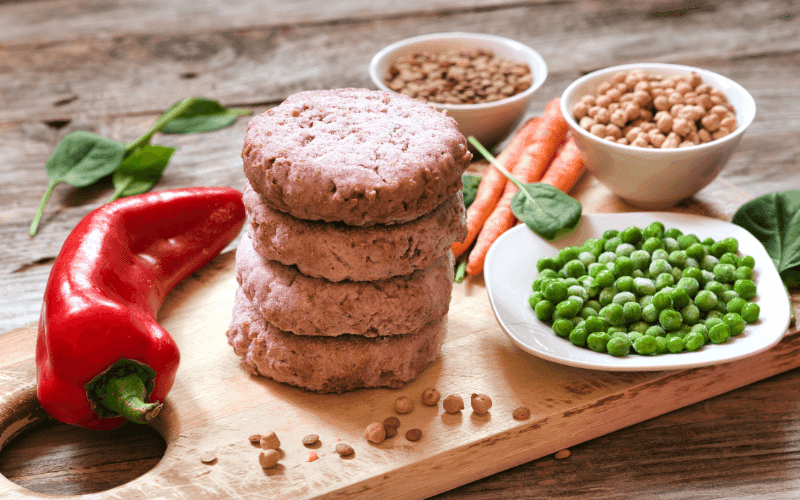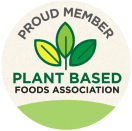Clean Label and Free-From Solutions for On-Demand Formulations

Gil Bakal of A&B Ingredients discusses innovative ingredients that offer better, broader functionality.
Gil Bakal is managing director at A&B Ingredients, Inc. a privately-owned food ingredient company in Fairfield, NJ. Gil developed a strong interest in food science and technology from an early age while attending trade shows with his family and occasionally assisting at his father's company ABIC International Consultants, which Abraham Bakal started in 1978. In 1990, Gil graduated from Tufts University, majoring in chemistry and English. After college, he spent several years working in epidemiology and pursuing his musical passion. Later, Bakal joined his father at A&B Ingredients and focused on establishing a market for rice starches in North America. He was instrumental in developing end applications and building the rice starch industry in the U.S. In 2001, Gil took the managing role in the company and focused on finding unique technologies and ingredients that could add value and benefits to the food industry in North America.
Health E-Insight (HEI): Clean-label ingredients seem to be your company's forte.
Bakal: A&B Ingredients was founded in 1990. From the beginning, we focused on discovering unique, clean-label ingredients that enable our food and beverage industry customers to create value-added products. We focus on research and development that is supported by our applications and antioxidant laboratories, R&D and technical teams, and microbiological testing. Our key strength lies in understanding ingredients and their functionality, and uncovering new and unique functionalities and benefits that other people have not identified yet.
Initially, A&B Ingredients specialized in starches, particularly rice starches, as a clean-label alternative to modified starches. The clean label trend is taking center stage now, but it launched many years ago when consumers started looking for cleaner, simpler ingredients, and avoiding synthetics. This change prompted manufacturers to look for clean, natural alternatives to artificial ingredients.
In addition to providing clean-label, natural, plant-based solutions, we also specialize in free-from solutions. Free-from means that our ingredients are non-GMO and have low allergenicity, like pea and other alternative proteins. Our ingredient portfolio includes proteins, fibers, starches, natural low-sodium sea salts, natural flavor enhancers, probiotics, and natural plant-based extracts that provide shelf-life benefits.
In addition to providing clean-label, natural, plant-based solutions, we also specialize in free-from solutions. Free-from means that our ingredients are non-GMO and have low allergenicity, like pea and other alternative proteins. Our ingredient portfolio includes proteins, fibers, starches, natural low-sodium sea salts, natural flavor enhancers, probiotics, and natural plant-based extracts that provide shelf-life benefits.
HEI: Let's discuss your new ingredients launch, natural clean-label antioxidants as a new alternative.
Bakal: We are really excited about our latest natural oil-soluble antioxidant, CytoGUARD ZOX-OS. We are always looking for new and innovative ingredients that can offer better, broader functionality to our customers. We have discovered a Mediterranean spice extract with unique benefits that could perform better than rosemary extract, the current standard in natural antioxidants.
CytoGUARD ZOX is a unique product and is the next generation of plant-based antioxidants. Among the main advantages are high stability, ease of use, and application versatility. CytoGUARD ZOX offers a measure of protection against oxidative rancidity and can be added to oils easily. Studies have shown that it is highly effective at replacing synthetic antioxidants, including TBHQ.
This ingredient is a powerful addition to our portfolio of natural shelf-life extenders marketed under the CytoGUARD name. CytoGUARD is a line of natural extracts and flavors specifically designed to be a natural solution for food quality protection for clean label manufacturers, including yeast and mold control, oxidation control, shelf-life extension, and microbial protection.
HEI: Faba bean proteins have become trendy. What makes it so vital to finished product formulations?
Bakal: Manufacturers are always looking for next-generation ingredients, and alternative protein sources are trending. Pea protein was very innovative when it was launched as an alternative to soy proteins. Now formulators are looking for the next innovation in proteins, and faba beans have the potential to become the next big thing in plant proteins.
Faba beans offer many functional benefits but have a strong flavor, which poses a challenge for formulators making faba bean-based plant products. Our manufacturing partners were able to create textured faba bean proteins that have a neutral taste. Through our partnership, we now offer two textured faba protein options. These textured faba bean proteins have a great texture similar to pea and a low-flavor profile. Utilizing some of the natural characteristics of faba beans, in addition to the standard product, our partners created a textured product that has a natural reddish color. This textured protein is ideal for use in plant-based burger patties. It can mimic ground beef's natural color without adding synthetic colorants.
HEI: Functional starches are another new clean-label ingredient. How do they fit into functional health products?
Bakal: We are now offering new clean-label starches that have been physically modified to enhance functionality but without the use of chemical modifying agents. These are the next-generation starches offering functionality similar to chemically modified starches while maintaining a clean label.
HEI: Your protein-binding enzymes offer numerous applications. How so?
Bakal: The use of transglutaminase enzymes provides a range of benefits by getting the most out of the protein functionality. By using these enzymes, manufacturers can improve protein functionality and achieve enhanced textural characteristics in the finished product. Applications include meat, poultry, seafood, dairy, and plant-based alternatives. Our TG enzyme blends, fortified with different protein sources, were designed to make it easy for manufacturers to get the most functionality out of their specific protein source, whether it's meat, dairy, seafood, or plant-based alternatives.
HEI: As you look back at your 30 years in the health ingredient business, what significant changes have brought a smile to your face?
Bakal: I am amazed by how many of the trends we have discussed in the past 30 years have materialized in various products and manufacturers. The world is now more aware of the importance of clean-label, natural foods. The plant-based trend has taken off so well that it has even penetrated the fast food industry. Consumers are more aware of the benefits of healthy eating, and they are more discerning as a result. They are better educated, they read the labels, and it's changing the whole industry. CPG companies are formulating new products or adjusting the formulations to fit consumer expectations for natural products. The number of new products and launches from small, innovative, start-up companies is truly inspiring. Back in the day, industry giants dominated NPD. But today, many prominent players look at start-ups for innovation and creativity.
HEI: In addition to smiles, what excites you most about your company?
Bakal: I continue to be amazed at how adept, agile, and responsive our team can be. We are quick to react to the market and customer needs and innovate to develop new ingredients and new technologies.
HEI: Finally, if you could change anything about the supplement or food industry, what would you do?
Bakal: There has been so much incredible innovation in supplements and healthy ingredients. I think it would benefit consumers if manufacturers were able to take stronger positions on their discovered health claims and help with consumer education to facilitate the adoption of these supplements. Current rules and regulations limit what claims supplement brands can make, what studies they can generate to support those claims, and how they are able to communicate those benefits.
For example, if we look at how proactive and advanced the pet food industry has been in making nutritional claims related to supplements, we can see how it has benefited pets and the industry as a whole. They can provide a good example of making clinically supported, nutritional, health-related claims. I hope that the food industry can use this as an example.
This interview was published in Nutraceuticals World on October 3, 2022.
How Can We Help?
We are here to help you with development of new and improved food products. Our technical service and sales teams can assist you in choosing the right ingredients best suited for your applications.
Product CatalogContact Us
